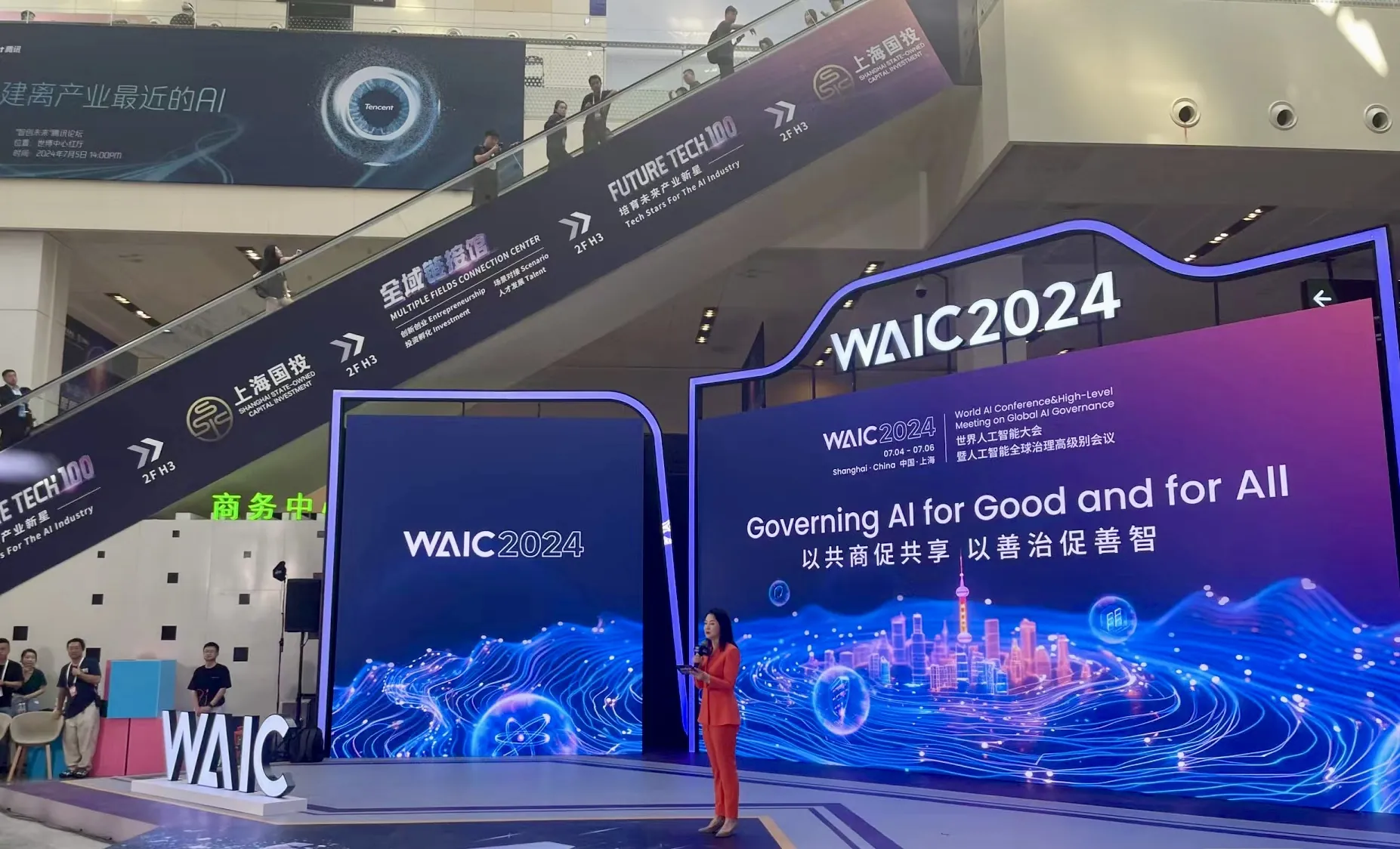Key takeaways:
- Among the many treasures, AI assistants using large language model (LLM) technology and humanoid robots stood out.
- Visitors were particularly drawn to video-generated LLM and completely unmanned, human-carrying vehicle technology.
- AI governance emerged as a key topic of focus.
From 7-9 July, the World Artificial Intelligence Conference 2024 (WAIC 2024) took place in Shanghai. According to official data, as of 2pm on 9 July, the number of offline visitors exceeded 300K, while online engagement surpassed 1.9 billion, marking a 90% increase compared to the previous year, setting new records. This year’s conference featured over 500 companies and more than 1,500 exhibits. The main attractions were LLM applications and humanoid robots.
The first WAIC was held in 2018, just two years after AlphaGo defeated a human chess player, at a time when many still lacked a comprehensive understanding of AI. By 2024, a wide array of Generative LLM technologies and applications have emerged, with AI governance becoming the central theme of the conference.
AI treasures
Compared to complex algorithms and high-end forums, the annual “treasures” of the conference are the latest applications for everyday users. The eight “treasures” of WAIC 2024 are: Tongyi Lingcode of Aliyun (阿里云通义灵码), AI Yuanqi of Lenovo YOGA Book 9i, Alipay Intelligent Assistant, SenseTime Vimi Controlled Character Video Generation LLM, Tesla Cyber Cross-Country Wagon, Zhipu AI LLM, Intelligent Flying Vehicle Display Area, and the “18 Buddha’s warrior attendant” (十八金刚) Humanoid Robots.
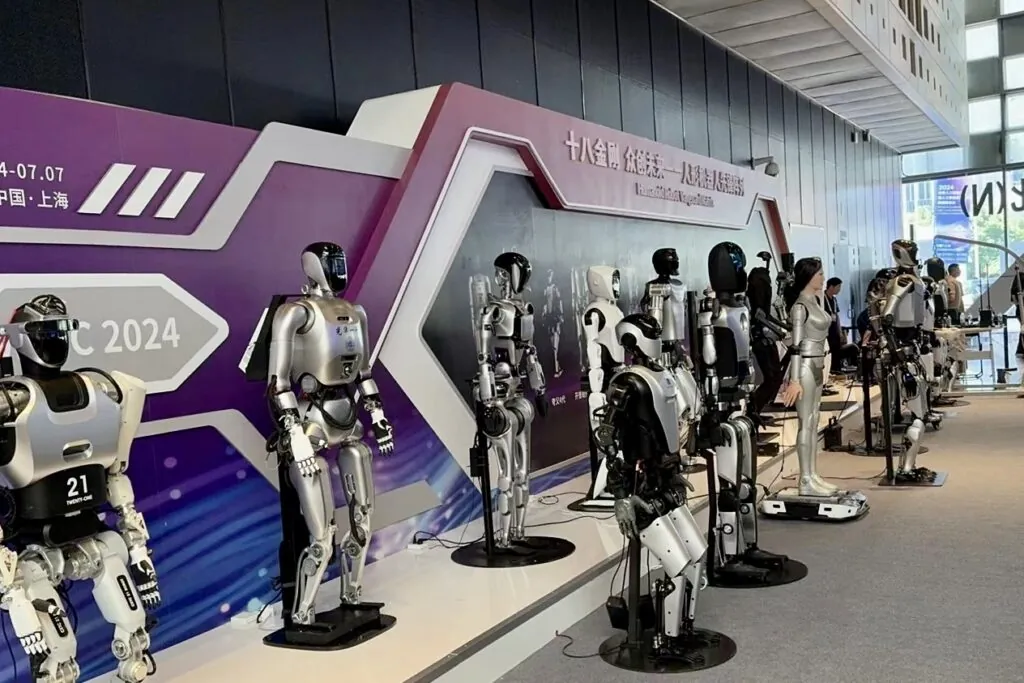
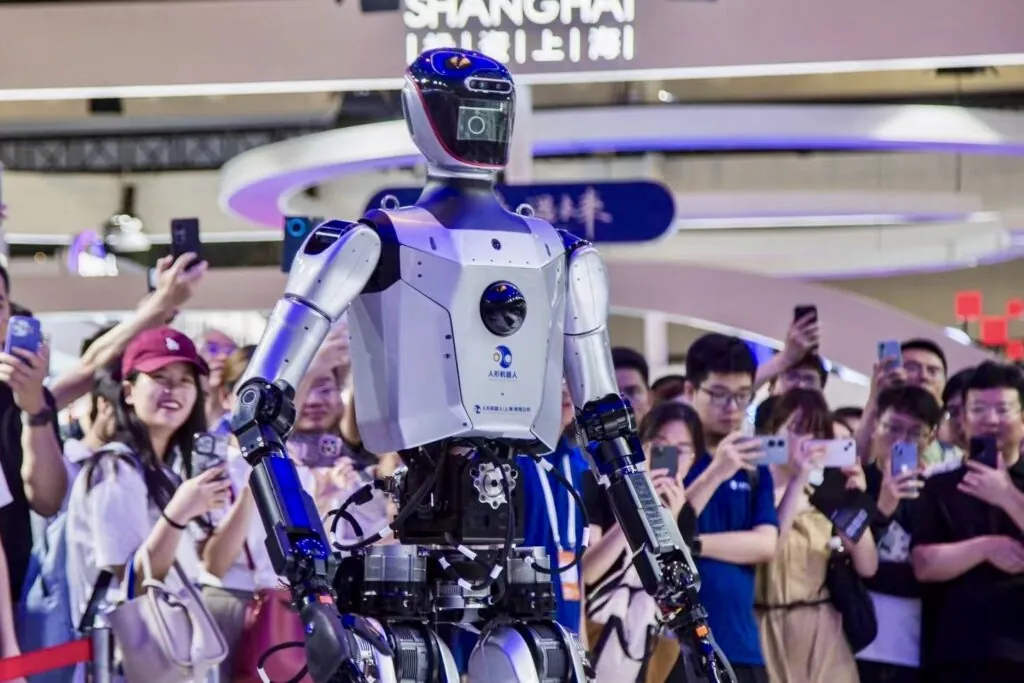
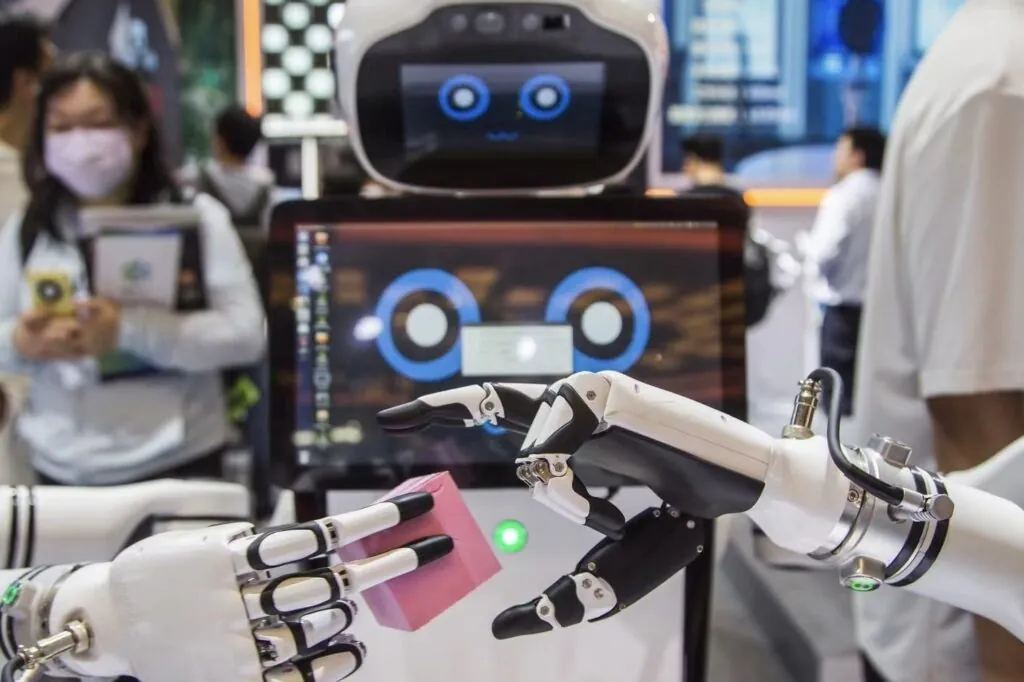
AI assistants integrated with LLM were a significant highlight among these treasures. For instance, the Alipay Intelligent Assistant, based on Ant Group’s self-developed LLM, can be accessed by pulling down on the homepage. It offers over 8,000 digital life services in areas such as travel, health, government, and finance. Tongyi Lingcode of Aliyun, proficient in more than 200 programming languages, assists in writing, reading, debugging, and optimising code. It has been downloaded over 3.5 million times, helping developers generate code on a daily basis.
AI assistants integrated with LLM
The concept of embodied intelligence is also a major trend this year. As quoted by NVIDIA founder Jensen Huang, embodied intelligence is an intelligent system that can understand, reason, and interact with the physical world, representing the next wave of AI. This focus brought humanoid robots into the spotlight at the conference. The “18 Buddha’s warrior attendant” humanoid robots at the venue’s entrance, originating from various humanoid robot companies, attracted many visitors.
Public focus
Let’s explore two related topics that made it to Weibo’s Hot Searches:
#Kuaishou Kling AI Ushers in the Strongest Update# garnered 14.8 million views. Kling is Kuaishou’s video generation LLM. Utilising this technology, the first AIGC original fantasy microdrama will soon debut on Kuaishou (China’s short video platform).
During the conference, Kling interacted with users, transforming inputted text into high-definition video or animating old photos to move like a video, providing a stunning visual and emotional experience. The topic #CCTV Reporter Tests AI That Animates Old Photos# amassed 11 million views, with over 500K people already queuing up for Kling’s internal testing.

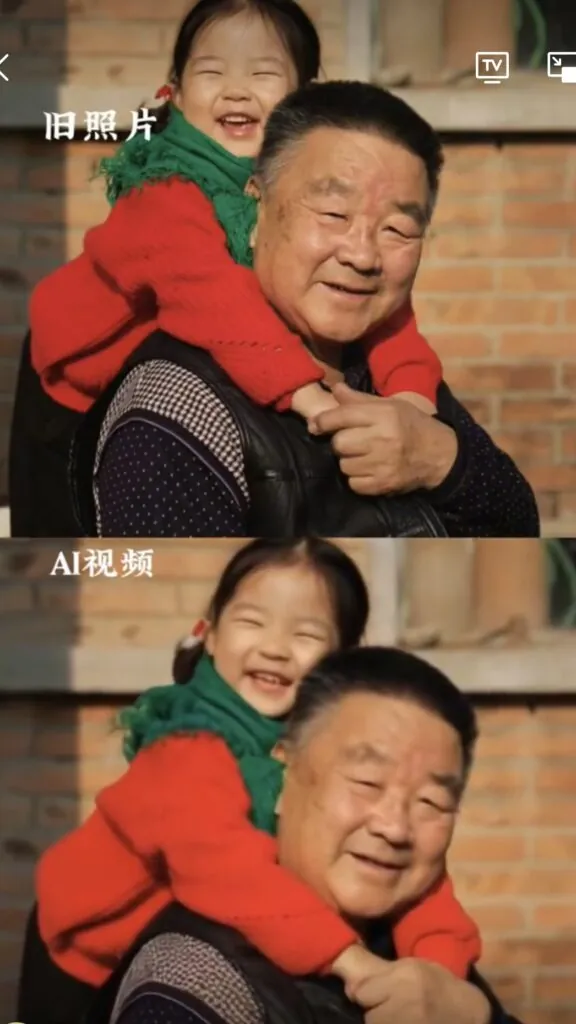

#Shanghai Issues First Licences for Completely Unmanned Vehicles# received 2.2 million views. At the conference, Shanghai issued the first batch of demonstration application licences for driverless intelligent networked vehicles, also known as “completely unmanned vehicle licences.” This allows the four licensed companies to deploy fully unmanned vehicles on select roads in the Pudong district, Shanghai. The public can book free rides in these driverless taxis through the corresponding software.
Completely unmanned vehicles in Shanghai
During the demonstration phase, each vehicle must complete at least 5,000 kilometres of driving to verify the safety and reliability of its operating system and unmanned operation. Upon successful assessment, relevant departments will decide whether these enterprises and vehicles can commence commercial operations in designated areas, promoting the commercialisation of driverless travel.
Thoughts contention
In addition to the products, several related topics from the conference dominated public opinions.
Bilibili’s popular science influencer, Dr Tang Cheng from the Chinese Academy of Social Sciences Institute of Neuroscience, expressed a desire for AI to be more modest. “For example, if you ask AI a professional question and it doesn’t know the answer, it should simply admit it instead of generating nonsensical content. AI should acknowledge its limitations.” This sentiment resonated with many, leading to the Weibo topic #Famous Influencer Hopes AI Will Be More Modest#, which garnered 4.9 million views and widespread agreement from netizens.
“AI should acknowledge its limitations.”
Baidu Chairman and CEO Robin Li, speaking at the forum, criticised the rampant development of LLM, highlighting the significant waste of computational power. However, he acknowledged that the intensive focus on developing LLM has yielded impressive results, with Baidu’s Ernie Bot ranking among the world’s top AI models.
At last year’s conference, Elon Musk highlighted safety concerns regarding full-scale artificial intelligence and predicted that robots would eventually outnumber humans. Consequently, AI governance has become a focal point this year. Additionally, this year, the European Parliament adopted the Artificial Intelligence Act (AI Act), aiming to regulate AI effectively.




